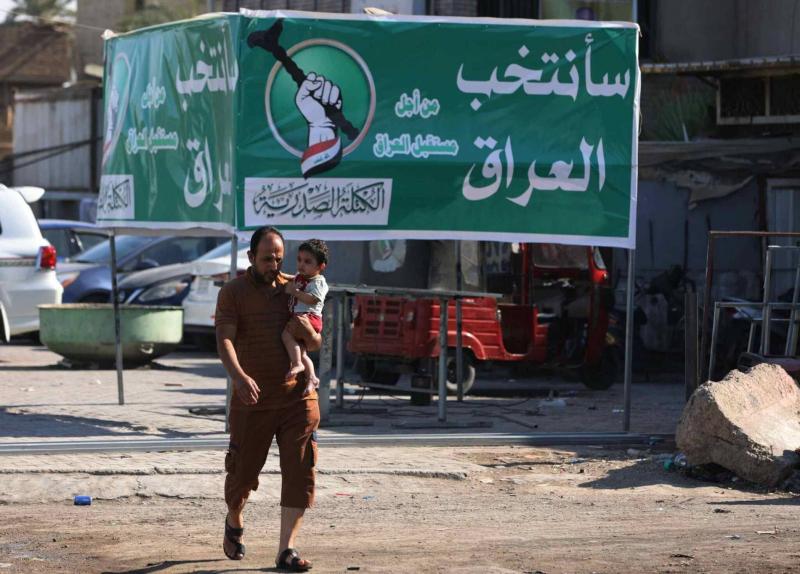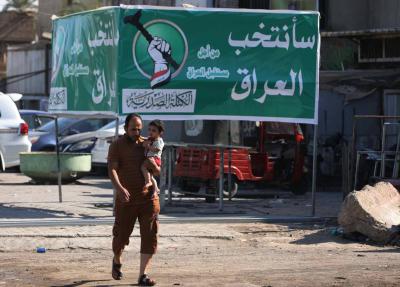Voting began this morning, Monday, in the general election for provincial councils not organized in Iraq. Electoral centers opened their doors for Iraqis to cast their votes. The special voting process for local elections for members of the security forces, displaced persons, and prison inmates took place last Saturday.
These elections include 15 out of 18 provinces, as 3 provinces in the Kurdistan region are not included in these elections designated for non-organized provinces. Local elections are also taking place in Kirkuk province for the first time since 2005, due to its specific circumstances.
Imad Jamil, head of the media team for the Electoral Commission, stated that the number of distributed biometric cards reached 14 million and 250 thousand. It is anticipated that the ruling Shiite coalition will strengthen its grip on power through these elections, especially with the boycott of the populist cleric Muqtada al-Sadr, the main competitor.
The elections pave the way for parliamentary elections scheduled for 2025, which will determine the balance of power in a country where Iranian-linked groups have gained political ground in recent years. It is likely that Sadr's Shiite opponents, who obstructed his attempt to form a government after his victory in the 2021 parliamentary elections, will dominate most provincial councils, especially in the southern provinces with a Shiite majority.
This would enhance the power of the ruling Shiite coalition known as the Coordination Framework and deepen its strength through access to the country’s oil wealth, which can be spent on local projects and services. The coalition already forms the largest bloc in parliament after the withdrawal of Sadr's party members.
Security authorities initiated a ban on the movement of motorcycles and large trucks on the roads starting last night. The Cabinet had set December 18 as the date for the 2023 provincial and district council elections at the beginning of June.
Provincial councils were last elected in Iraq in 2013 before being dissolved amid large protests that swept the country in October 2019, which protested the deteriorating living and service conditions, financial and administrative corruption, and widespread corruption in state institutions.
Several political forces and parties, notably the largest with a grassroots base, the Sadr Movement led by cleric Muqtada al-Sadr, are boycotting these elections to leave the field open for the Coordination Framework, which includes Shiite factions opposed to Sadr. Sadr, a populist leader presenting himself as a strong opponent of both Iran and the United States, asserted that the elections will reinforce the dominance of the corrupt political class.
Provincial councils were established after the U.S. and allied forces invaded and toppled Saddam Hussein's regime in the spring of 2003. These councils have various powers, including electing the governor and his deputies by an absolute majority of council members within a maximum of 30 days from the first council session. They can also interrogate the governor or one of his deputies for several reasons, including public fund waste, negligence or failure to perform duties, lack of integrity, and abuse of office.
These councils have oversight authority over all state department activities within the province to "ensure proper performance," excluding courts, military units, colleges, institutes, and departments affiliated with the federal government. They also monitor budgets for health, transport, and education sectors. According to the Iraqi Constitution, provincial councils are not subject to the authority or oversight of any ministry or entity not affiliated with a ministry, and they have their own administrative and financial powers.




